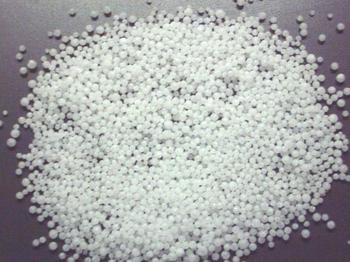 The international urea market saw very limited trading activity last week, as sellers were eager to offload short-term supplies. With prices continuing their downward trend, buyers remained cautious but still placed bids at increasingly low levels. The Easter holiday disrupted purchasing in many Latin American markets, further dampening demand.
Currently, the offshore urea FOB price at Yuzhki Port has dropped to $380 per ton, according to the latest data from NF. Meanwhile, urea prices in the Baltic Sea have fallen by $10 compared to earlier in the week, although shipping costs remain uncertain due to ongoing delays caused by icy conditions. With no positive factors supporting the market, it seems likely that urea prices will continue to decline throughout April.
Egyptian producer Mopco recently attempted to sell 25,000 tons of large-grain urea but failed to attract acceptable offers. No buyer was willing to take the stock at a price above $400, and even at that level, only small quantities would be purchased, with traders offering $20 less than the March shipment price. Two other Egyptian producers are expected to release their April production in the coming days, and it is anticipated that their FOB prices could fall below $400.
In the Middle East, the price of large granular urea has also seen a decline, with FOB prices in Southeast Asia now below $400 per ton. In the U.S., procurement activities have been slowed by adverse weather conditions. On March 28, the U.S. Department of Agriculture revised its corn acreage forecast to 97.3 million acres, which matched market expectations. However, prolonged cold and wet weather may lead farmers to abandon corn planting in favor of soybeans, reducing the demand for nitrogen-based fertilizers.
On Thursday, after the USDA reported a 6% increase in corn inventories to 7 billion bushels, corn prices began to drop. This development could have a ripple effect on fertilizer demand in the coming months.
While this week’s purchases by Latin American buyers might provide some temporary support to small granular urea prices, the Asian market remains sluggish. As a result, the price of large granular urea is expected to face further downward pressure in the near term.
The international urea market saw very limited trading activity last week, as sellers were eager to offload short-term supplies. With prices continuing their downward trend, buyers remained cautious but still placed bids at increasingly low levels. The Easter holiday disrupted purchasing in many Latin American markets, further dampening demand.
Currently, the offshore urea FOB price at Yuzhki Port has dropped to $380 per ton, according to the latest data from NF. Meanwhile, urea prices in the Baltic Sea have fallen by $10 compared to earlier in the week, although shipping costs remain uncertain due to ongoing delays caused by icy conditions. With no positive factors supporting the market, it seems likely that urea prices will continue to decline throughout April.
Egyptian producer Mopco recently attempted to sell 25,000 tons of large-grain urea but failed to attract acceptable offers. No buyer was willing to take the stock at a price above $400, and even at that level, only small quantities would be purchased, with traders offering $20 less than the March shipment price. Two other Egyptian producers are expected to release their April production in the coming days, and it is anticipated that their FOB prices could fall below $400.
In the Middle East, the price of large granular urea has also seen a decline, with FOB prices in Southeast Asia now below $400 per ton. In the U.S., procurement activities have been slowed by adverse weather conditions. On March 28, the U.S. Department of Agriculture revised its corn acreage forecast to 97.3 million acres, which matched market expectations. However, prolonged cold and wet weather may lead farmers to abandon corn planting in favor of soybeans, reducing the demand for nitrogen-based fertilizers.
On Thursday, after the USDA reported a 6% increase in corn inventories to 7 billion bushels, corn prices began to drop. This development could have a ripple effect on fertilizer demand in the coming months.
While this week’s purchases by Latin American buyers might provide some temporary support to small granular urea prices, the Asian market remains sluggish. As a result, the price of large granular urea is expected to face further downward pressure in the near term.A hydraulic quick coupler is a device used to quickly and easily connect and disconnect hydraulic hoses and attachments. It is commonly used in construction, agriculture, and other industries where hydraulic systems are used.
The quick coupler typically consists of two main components: a male coupling and a female coupling. The male coupling is attached to the Hydraulic Hose or attachment, while the female coupling is attached to the hydraulic system.
To connect the hydraulic hose or attachment, the male coupling is inserted into the female coupling and securely locked into place. This can be done by sliding or twisting the couplings together, depending on the specific design.
The quick coupler allows for a fast and efficient connection and disconnection of hydraulic hoses and attachments, saving time and effort. It also provides a secure and leak-free connection, ensuring the hydraulic system operates properly.
There are different types of hydraulic quick couplers available, including flat face couplers, poppet couplers, and ball couplers. Each type has its own advantages and is suitable for different applications.
Overall, a hydraulic quick coupler is an essential tool for anyone working with hydraulic systems, as it provides a convenient and reliable way to connect and disconnect hydraulic hoses and attachments.
Hydraulic Quick Coupler; Quick Coupler; Hydraulic accessory; Hydraulic coupler; Hydraulic spare part
Yantai Dongyue Hydraulic Technology Co., Ltd , https://www.deeleap.com